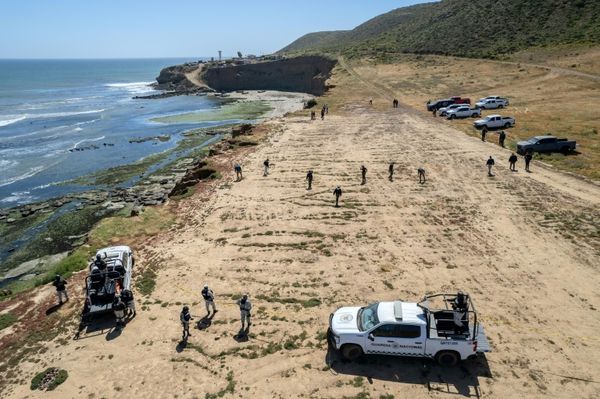
More than three months into a conflict that has claimed the lives of tens of thousands of people, it is clear there is only one way Israel can return all of the hostages from Gaza alive: an “all for all” deal with Hamas – all of the hostages, an estimated 129 of whom are believed to be alive, in exchange for all of the Palestinians in Israeli prisons.
There are about 8,000 Palestinian prisoners now in Israeli jails. Of these, 559 are serving life sentences for killing Israelis, and another 130 were caught in Israel in the two days after the 7 October Hamas attacks.
The difficulty for Israel in releasing these prisoners is made obvious by looking at previous negotiated swaps. Many of those responsible for the terrorist atrocities on 7 October had previously been released in an exchange for the Israeli soldier Gilad Shalit in 2011.
In recent days, there have been reports of a month-long humanitarian pause in which negotiations for the release of Israeli hostages can take place. An “all for all” swap would almost certainly be seen as an enormous victory for Hamas, but there is no victory for Israel if all the hostages are not brought home alive.
Of the 8,000 Palestinian prisoners, one in particular could play a pivotal role in achieving postwar stability. Marwan Barghouti, the former leader of the Fatah faction in the Palestinian Legislative Council, was arrested in 2002 and sentenced to five consecutive life sentences for five counts of murder, plus 40 years for leading the second intifada.
Barghouti refused to present a defence in his trial, maintaining that the process was illegal and illegitimate. In Palestinian public opinion polls over the last decades, he is the only candidate for Palestinian president who continually defeats every other potential candidate. Barghouti was behind the “prisoners’ document” written in May 2006 by all Palestinian factions, including Hamas. This document is still a potential basis for unifying Palestinian leadership in the postwar reality. Many believe only he is the only Palestinian leader who can build unity.

Before the second intifada, I spent hundreds of hours in dialogue with Barghouti. I have stayed in contact with him over the last 22 years through his lawyer, and I know that he supports the two-state solution and believes that the best outcome for Palestine and Israel would be reached through a negotiated agreement.
The question of who can govern Gaza after the war is one many are grappling with, but an interim period of stabilisation will have to be overseen by a combination of Arab countries and an international coalition.
The question will then turn to the withdrawal of Israeli troops. There is no good scenario for Israel after this war if its forces intend to remain in Gaza. Doing so would force Palestinians to create a local administration based on clan leaders, and uprisings against the Israeli occupiers would be guaranteed. Meanwhile, any Palestinian local administration seen to be collaborating with an Israeli occupying force would be labelled treacherous.
The Palestinians need new leadership: engaging with Barghouti now, while he is in prison, could provide this. One of the tenets of an understanding between Israel and Barghouti could be his declaration of support for the two-state solution and the abandonment of the armed struggle. At the same time, Barghouti should call on the international community to recognise the state of Palestine.
The present Israeli government will not allow this scenario to become a reality. But, soon after the war is over, Benjamin Netanyahu will face his day of reckoning with the people of Israel and be held responsible for his failures. Israel will enter into a new round of elections, and the release of Marwan Barghouti could be one step toward both unifying the Palestinian people and the implementation of the two-state solution.
The only victory in this horrific war is one in which Palestinians and Israelis get back to working on a long-term resolution to this conflict.
Gershon Baskin is the Middle East director for International Communities Organisation (ICO), a UK-based NGO
Do you have an opinion on the issues raised in this article? If you would like to submit a response of up to 300 words by email to be considered for publication in our letters section, please click here.







